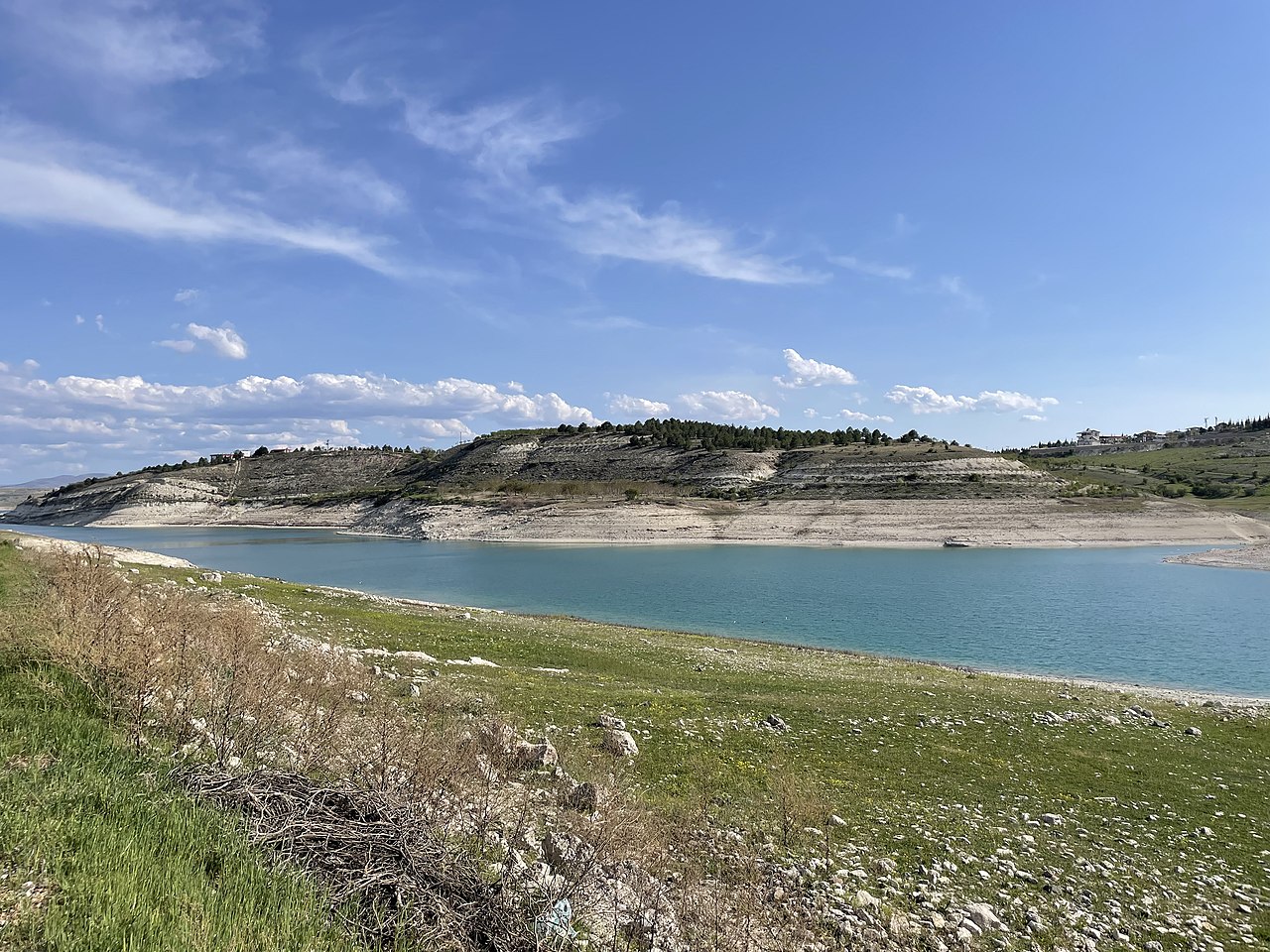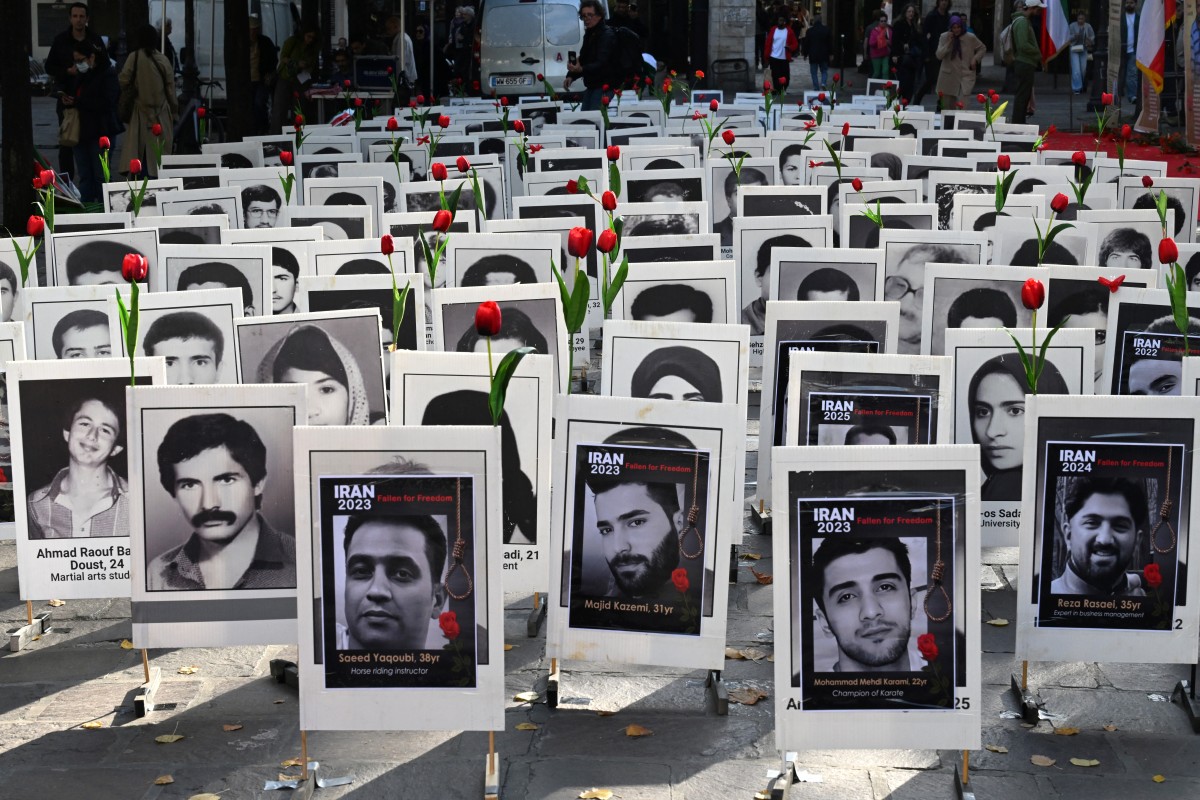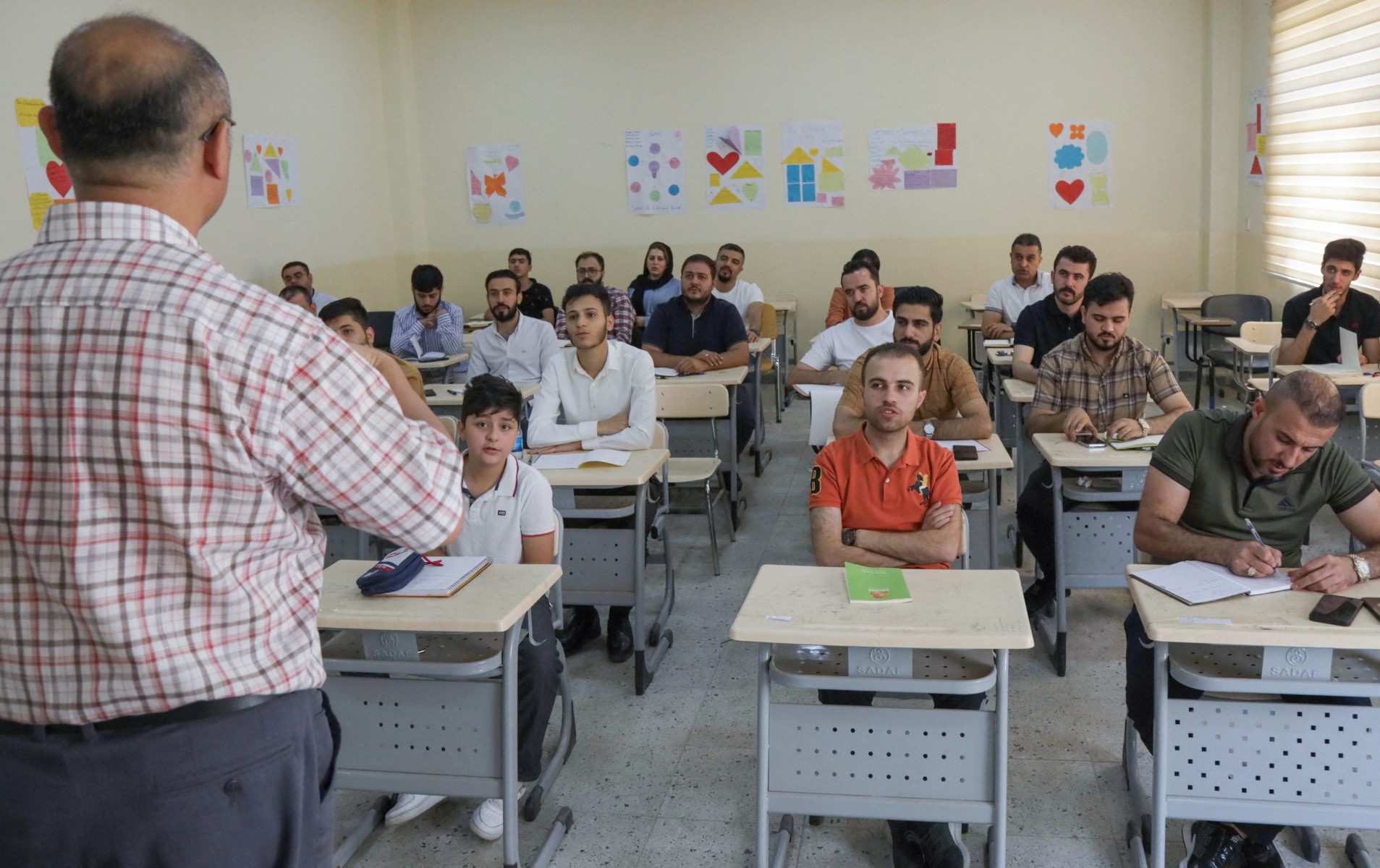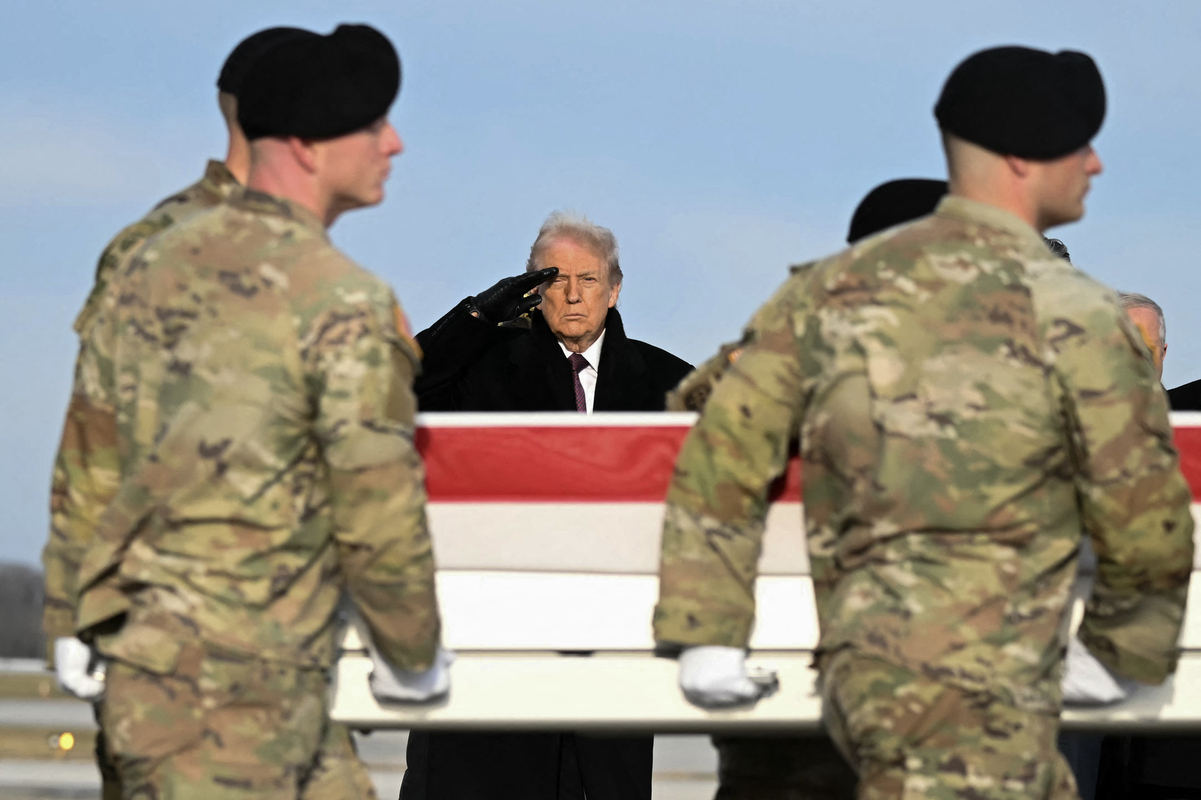Iraq-Turkey Water Deal: Water as a Regional Power Tool
The Euphrates River in Turkey | Picture Credits: Carole Raddato/Wikimedia Commons
There is a sense of irony in the photo of the signing of the water deal between Iraq and Turkey. The photo shows Turkish foreign minister Hakan Fidan and Iraqi foreign minister Fuad Hussein. Both men are Kurds. Mohammed Shiaa al-Sudani, the prime minister of Iraq, stands behind them, supervising the signing. The photo is especially ironic considering that, in the past half-century, Turkish water policy has been shaped against the Kurdish people.
Without understanding Turkey’s domestic water policy, it would be hard to comprehend its policies in the neighboring countries. Historically, Turkey has used water as a tool to dominate and control the Kurds inside Turkey. Now, Turkey approaches its regional neighbors from that background and worldview. Turkey’s water policy toward Iraq used water as a strategic instrument within the framework of the Development Road Project and energy cooperation. This is only a natural extension of Turkey’s domestic policy.
The Republic of Turkey has engaged in an aggressive process of nation-building since its inception in the 1920s, which tries to assimilate all non-Turks within its borders. Kurds have been the main challenge of this project. As Turkey’s water resources are mainly in Kurdistan, water has been weaponized in this process in many ways.
In the 1970s, Turkey launched the Southeastern Anatolia Project (GAP) to build a large-scale water infrastructure through a number of dams in Kurdistan to expand the state’s influence, ensure its hegemony, strengthen national identity, and exert social control. In the meantime, the dams are presented as symbols of modernity, strong statehood, and unified nationhood. In fact, in addition to the nation-building process, security and control have been other ingredients in these projects. Accordingly, nearly 30 dams and hundreds of hydroelectric power plants (HPPs) were built for security purposes. These dams in Bingöl, Şırnak, Hakkari, Batman, Mardin, Diyarbakır, and Dersim directly impact the region’s historical sites, residential areas, endemic plant species, and ecosystems. Consequently, they evacuate villages, restrict movements, and wipe out memories. Turkey is a unique country with regard to water politics, as it is able to use water as a lever domestically and externally.
Against this background, Turkey is refusing to comply with international law that considers the Euphrates and Tigris as cross-country rivers. Treating them as Turkish rivers establishes a hierarchy; accordingly, Syria and Iraq have to be grateful for what they get rather than demanding their fair share and rights.
What happened in Baghdad?
In a rare development of the Iraq-Turkey water issue, the two countries recently signed a deal on water management. The deal is not an agreement; it is rather a framework that might last five years. Accordingly, both countries will start to work on projects including improving water quality and reducing river pollution, developing modern irrigation techniques, rehabilitating agricultural lands, and enhancing water governance and rational use of resources. All the projects in these areas will be implemented by qualified Turkish companies, with local Iraqi firms participating as partners. Funding of these projects will be provided from crude oil sales to Turkish firms, with the possibility of selling this oil in European markets.
Iraq has thus moved into a new era in its relations with Turkey when it comes to water. Based on this new formula, Iraq is no longer demanding its fair share of water from Turkey, as it was claiming in the past. It has rather agreed to yield to Turkey’s demand to enter a transactional deal. Hence, in order to receive enough water, Iraq is granting contracts to Turkish companies in water areas, in addition to giving oil and increasing its imports from Turkey. This is a shift from having a right to a fair water share to a market transaction.
Another aspect of the memorandum between the two sides is modernization. As an advisor from the Iraqi side put it, modern infrastructure must replace the existing outdated infrastructure in Iraq. This modernization perspective has to be seen in light of Turkish interests since the 1970s in Northern Kurdistan (within Turkish borders). According to the rural sociologist Joost Jongerden, an expert on Turkey and Kurdish issues at Wageningen University, the Turkish-Iraqi deal essentially is an oil-for-infrastructure arrangement—lucrative for Turkey’s construction sector. Turkish companies are also eyeing lucrative construction contracts in Syria. The deal is therefore indicative of Ankara’s growing influence in the region, as well as the growing dependence of neighboring countries on Turkey.
As oil becomes the center of this new relationship, it reminds Iraqis of other past experiences. In 1996, the UN introduced the oil-for-food program. In the post-Saddam era, Iraq and China introduced oil for infrastructure, and now Turkey demands oil for water. This shows the classic formula of Iraq as a country and people that can barely live on their natural resources, instead remaining in a state of poverty, dependency, and failure.
According to Article 1 of the protocol, the ‘Friendship and Neighborly Relations Treaty ‘ in 1946, Turkey agrees to inform Iraq about the projects it plans to implement on the Tigris and Euphrates and their branches, with the goal of coordination in order to secure the interests of both parties involved. Despite this good start, the two countries failed to reach an agreement. Primarily, this was due to political and geopolitical reasons, as Hassan al-Janabi, former Iraqi Minister of Water Resources, chronicles in detail. However, this view shows a grave misunderstanding of Turkish water policy on his side.
In the 1970s, Iraq tried to receive more water through former water minister Mukarram al-Talabani, a Kurd and fluent Turkish speaker. The latter’s diaries show that Turkey always eyed Iraq’s vast natural resources, especially oil.
What lies in the future?
For Abdul-Mutalib Rafat, a university lecturer in Iraqi Kurdistan, the deal will not last long despite the huge benefit for Turkey. When, in five years, Turkey completes the Al-Jazra dam, the situation will be more dangerous.
Other local media portrayed the deal as a form of colonization through water. As the memorandum is waiting to become effective officially, Iraqis are campaigning on social media, pushing for highlighting water shortages and boycotting Turkish goods. However, Iraqi socio-political structures are serving this development. For instance, the water shortage is portrayed as though the water crisis in Iraq only affects the south. ‘South’ within the Iraqi political lexicon has a sectarian connotation. When even the climate is seen through a sectarian eye in Iraq, Turkey will not struggle to impose its agenda.
Sardar Aziz
Sardar Aziz is a researcher, columnist, and international advisor. Worked as senior adviser, Kurdistan Parliament, Iraq. writes in Kurdish and English. He focuses on Kurdish politics and economy, Iraqi politics, and China-Kurdistan and Iraq relationship. He has published with numerous think tanks in the US, Europe, and the Middle East. Author of a number of books in Kurdish in the areas of governing, institutions, and political economy. He has a PhD on the State in the Arab Middle East from University College Cork (UCC) Ireland. He teaches annually at the Asian Study UCC.




